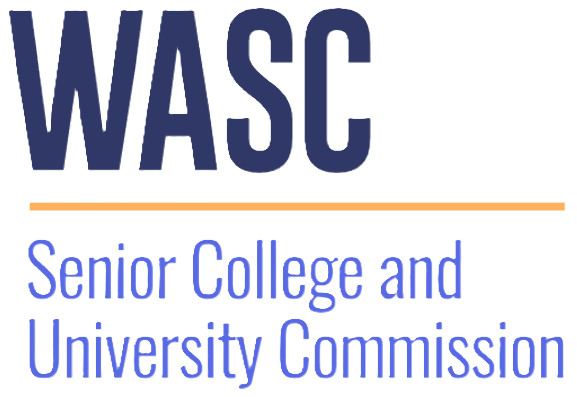
The Western Association of Schools and Colleges (WASC) is one of America's six regional accreditation agencies. Its jurisdiction covers California, Hawaii, and the Pacific regions. Four-year institutions seek accreditation from WASC for Senior Colleges and Universities (WSCUC). In contrast, non-four-year institutions obtain theirs from two other commissions (one for junior colleges and the other for K-12 schools and non-degree-granting postsecondary institutions).
California State University, San Bernardino, completed its accreditation reaffirmation cycle in 2021. As a result, WSCUC issued its action letter to CSUSB President Tomás D. Morales on March 9, 2022. In it, the Commission reaffirmed accreditation for ten years. In addition, the WSCUC commission commended the university for:
- Making enormous and impressive strides directly addressing the identified requirements outlined in the last Commission Action Letter.
- DEI governance model is highly inclusive and reflects a genuine commitment to diversity, equity, and inclusion as part of the emerging fabric of the institution.
- Student advisors across the university collaborate in powerful ways to consistently provide a full range of support that contributes to student success.
- The thoughtful and intentional way in which IT and IR teams envisioned, planned, and built systems and platforms in support of student success and in response to the global pandemic.
- Allocating resources for initiatives such as DEI, the Quarter to Semester transformation, and the development of a culture of assessment – that demonstrates the level of institutional commitment required for successful implementation of these overarching strategic goals.
- Creating a culture of continuous improvement by breaking down silos and working together across the university.
- Developing a meaningful and substantive student-centered focus across multiple departments and programs.
While the university celebrates its success in obtaining reaccreditation from WASC, we are aware that we need to do more to fully realize the meaning of a CSUSB degree https://bulletin.csusb.edu/about-university/. We are poised to move forward along a path of continuous improvement for our students and our community.
CSUSB WSCUC Accreditation Records
CSUSB Reaffirmation of Accreditation 2021
WSCUC Timeline
Why is WSCUC accreditation important for our campus?
Watch this quick video to find out!
What are the WSCUC Core Competencies?
All students graduating with a baccalaureate degree from a WSCUC accredited university are required to have achieved proficiency in the following five Core Competencies:
- Writing (W)
- Oral Communication (OC)
- Quantitative Reasoning (QR)
- Information Literacy (IL)
- Critical Thinking (CT)
These core competencies are outlined in WSCUC’s 2023 Handbook of Accreditation. Graduates are expected to achieve these competencies upon graduation within their General Education (GE) courses as well as demonstrate program-specific competency in each area.
Search for all WSCUC policies here: https://www.wscuc.org/resources/institution-toolbox/
Why is this important?
The WSCUC Core Competencies align Program Learning Outcomes (PLOs) with General Education Learning Outcomes (GLOs) as well as with Institutional Learning Outcomes (ILOs).
The Commission is asking all universities to provide documentation on how each program conducts its assessment, practices, and outcomes.
Who does this apply to?
In Criterion for Review (CFR) 2.2, WSCUC states that degree programs "engage students in an integrated course of study of sufficient breadth and depth. These programs ensure the development of core and professional competencies relevant to the level of the degree.”
How can we assess our programs and who can help?
To learn more about assessment, please visit our Assessment website which has helpful information regarding General Education (GE) Assessment, PLOs, ILOs, and more.
For help with program assessment, the Office of Assessment is always available to assist departments. Please contact the Faculty Director of Assessment for Academic Programs for any departmental assessment needs.